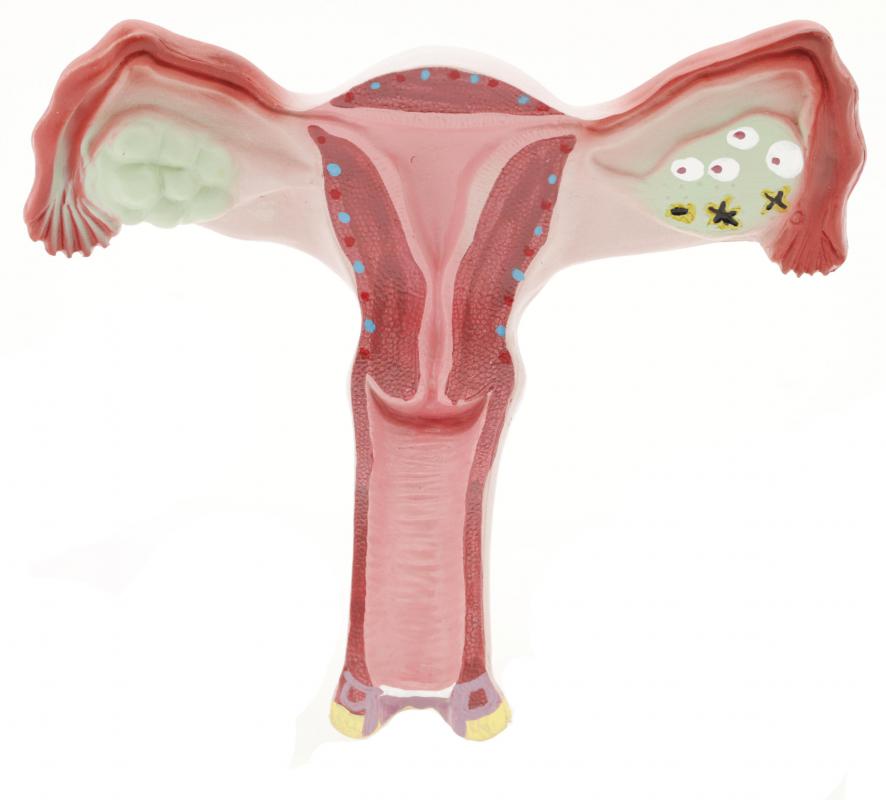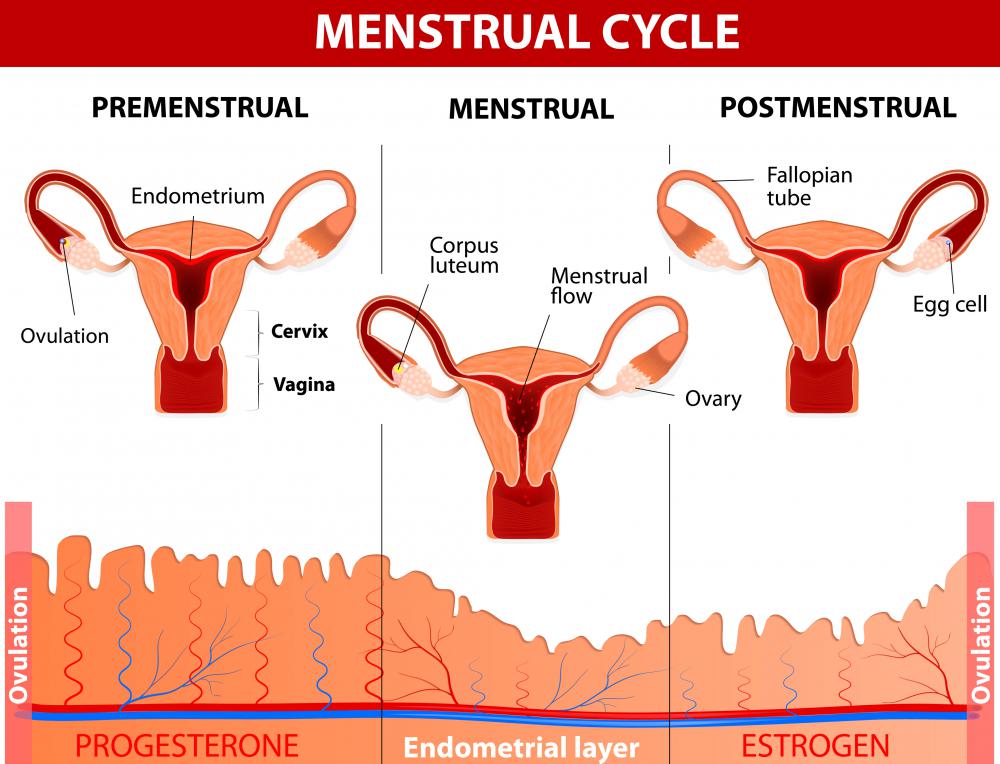At WiseGEEK, we're committed to delivering accurate, trustworthy information. Our expert-authored content is rigorously fact-checked and sourced from credible authorities. Discover how we uphold the highest standards in providing you with reliable knowledge.
What Is the Relationship between Progesterone and the Menstrual Cycle?
Progesterone and the menstrual cycle are closely related because menstruation could not occur without this hormone. Progesterone works with estrogen to thicken the uterine lining, and a sudden drop of progesterone causes it to shed during the menstrual period if a pregnancy does not occur. This hormone is also important when a pregnancy does occur, because high levels of progesterone ensure proper development of the fetus. In addition, an imbalance between progesterone and estrogen can lead to premenstrual syndrome (PMS). Some women use the relationship between progesterone and the menstrual cycle to their advantage, because this hormone can both prevent and improve a pregnancy when different amounts are present.
During the follicular phase of menstruation, the levels of both progesterone and estrogen are quite low, but they increase afterward, estrogen during the ovulatory phase and progesterone during the luteal phase. As a new egg matures in the follicle, progesterone and estrogen help to thicken the lining of the uterus in case a pregnancy occurs, so that an embryo can implant properly. In addition, the progesterone level stays high to allow the fetus to properly develop and to let blood circulate within the womb. Another job of this hormone during pregnancy is to create the mucus plug that protects the fetus from bacteria entering the uterus. A lack of this hormone can result in miscarriage, which is why progesterone and the menstrual cycle are both important to women who wish to carry a baby to term.

Progesterone levels rise after ovulation and if pregnancy does not occur, the progesterone levels drop suddenly, causing the uterine lining to shed during menstruation. Just before the drop in progesterone, though, many women suffer from PMS, which is the result of an imbalance in hormones. The progesterone level often spikes at this point, which can make women feel hungrier than usual. Many women also complain of bloating just before menstruation as a result of progesterone's tendency to make the kidneys store both water and salt. In addition, women often notice larger, firmer breasts because the tissue enlarges as a result of this hormone, which is just another way progesterone works together with the menstrual cycle even after a pregnancy has not occurred.

Some women take advantage of the relationship between progesterone and the menstrual cycle by adding more of this female hormone to their body to achieve various results. For example, some women can help prevent miscarriage resulting from low progesterone levels by taking pills, injections or suppositories that contain this hormone. Other women trying to prevent pregnancy use progesterone-only birth control pills, which can thicken the cervical mucus so it is hard for sperm to reach the cervix. It can also thin the uterine lining, because an increase in this hormone followed by a sudden decrease keeps the lining from getting too thick. Progesterone-only birth control pills have fewer side effects than combination pills that also contain estrogen, making them attractive to some women. Women should determine the best treatment based on the advice and supervision of their doctors.
AS FEATURED ON:
AS FEATURED ON:
















Discuss this Article
Post your comments